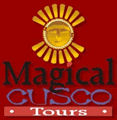 |
| Click On This Photo For Professional High Quality Peru Tours From Magical Cusco Tours Just Mention delange.org With Code Inka2010 Get A 4% Tour Discount With Any Package Tour Purchase! |
|---|
Pictures, Photos, Images, & Reviews.
Near Puno, Peru
George & Eve DeLange
Google Map To Lake Titicaca, Peru
View Larger Map
Lake Titicaca is the world's highest navigable lake and the center of a region where thousands of subsistence farmers make a living fishing in its icy waters, growing potatoes in the rocky land at its edge or herding llama and alpaca at altitudes that leave Europeans and North Americans gasping for air. It is where traces of the rich Indian past still cling, in spite of, the past centuries of the Spanish conquistadors' aggressive campaign to erase Inca and preInca cultures and, in the most recent times, the lure of our modern societies. This is the most sacred body of water in the Inca empire and now it is the natural separation between Peru and Bolivia. It has a surface area exceeding 3,100 square miles, with more than 30 islands. At 12,725 feet above sea level Lake Titicaca has basically two climates: cold and rainy or cold and dry. In the evenings it becomes very cold, dropping below freezing from June through August. In the day, the sun is very hot and sunburning is quite common. Legend is that Lake Titicaca gave birth to the Inca civilization. Before the Incas, the lake and its islands were holy for the Aymar� Indians, whose civilization was centered at Tiahuanaco, which is a complex of ruins on the Bolivian side of Lake Titicaca. Legend also says that the sun god had his children, Manco Capac and his sister consort Mama OcIlo, re-born from the cold waters of Lake Titicaca to found Cuzco along with the beginning of the Inca dynasty. Later on , during the Spanish Conquest, the lake is said to have became the hiding place for the emperors gold. Among the items buried upon the lake's bottom; is Inca Huascar's gold chain weighing about 4,400 pounds which was stored in Koricancha (The Temple of the Sun in Cuzco). But, his loyal subjects threw it into Lake Titicaca to prevent it from falling into the hands of the Spanish. In no way could we give you a complete description in the short time that we visited the lake. We hope this short page will make you interested in visiting Lake Titicaca. We visited Lake Titicaca on April 20, 2006 and on April 21, 2006.
|
It is advisable to book reservations ahead of time, as hotels, especially in high season, are quickly booked up. You can fly directly to this area but you must fly into the nearby Inca Manco C�pac International Airport (IATA: JUL, ICAO: SPJL), known as Aeropuerto Internacional Inca Manco C�pac in Spanish, located in the city of Juliaca, thirty minutes from the city of Puno at Titicaca Lake. It is run by CORPAC S.A. (Corporaci�n Peruana de Aeropuertos y Aviaci�n Comercial S.A.), a government-run organization that oversees the management of Peruvian airports. Its runway is the longest in Latin America. While it is called International; it does not serve international flights! > You can fly into Peru to international airports located at Lima, Arequipa and Cusco. Then you can be flown into the Inca Manco C�pac International Airport. Then, you can be transported from the airport of Juliaca, to the town of Puno in a taxi; with an average cost of about US $20; or in a minibuse, with an average cost of about US $5 per person. The leading hotels in Puno have transportation back to the airport. This page is for information purposes only and while we have made every effort to be accurate, it is the travelers responsibility to make the appropriate choice as to which hotels to use in Peru.
We found that when touring Peru, Magical Cusco Tours gave us the best service of all. They even arranged very personal tours based upon our ages and experience. They were there for us whenever we needed them. Click on any of their links on our pages and they will give you a 4% discount for taking their tours. Mention Delange.org; Merchant Code GD882010 for your discount! We suggest letting Ana Maria handle your tour. We do this all the time. It is safe and it works!!! We have never experienced a problem doing it this way! It is advisable to book reservations ahead of time, as hotels, especially in high season, are quickly booked up.
We also have links to Priceline.Com on our pages, in case you may prefer to use their services.
|
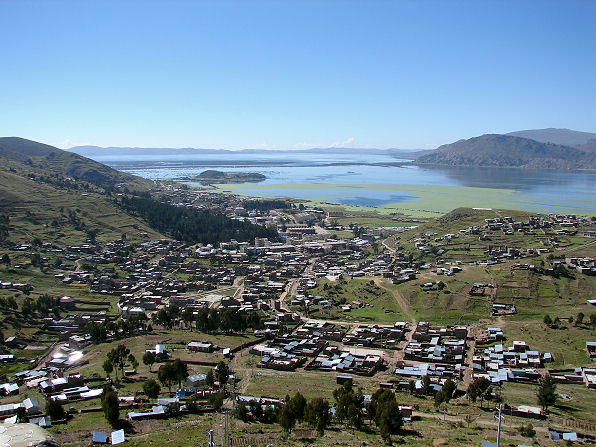 |
| Lake Titicaca From Puno |
|---|
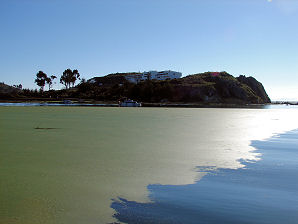 |  |
| Lake Titicaca Esteves Island Libertador Hotel | Lake Titicaca, Leaving The Dock Area |
|---|---|
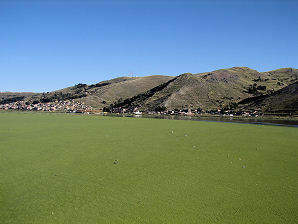 | 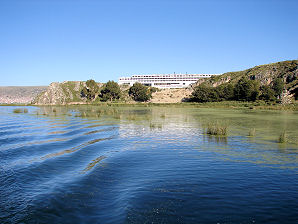 |
| Beautiful Green Duckweed | Lake Titicaca Esteves Island Libertador Hotel |
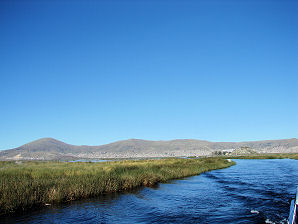 | 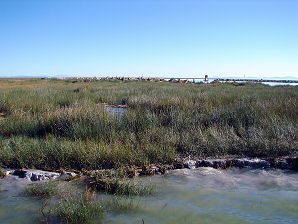 |
| Lake Titicaca Channel | Totora Reeds Near Uros Islands |
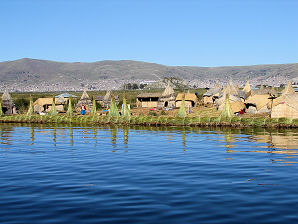 | 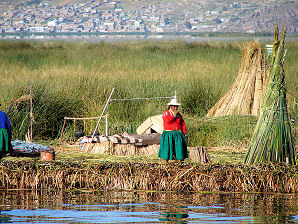 |
| Uros Islands | Uros Island Woman |
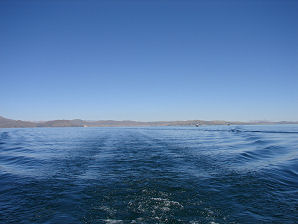 | 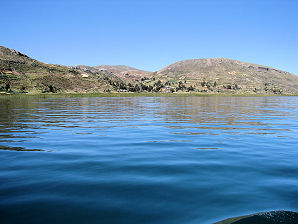 |
| Leaving The Uros Islands | Many Lake Titicaca Villages Along The Shoreline |
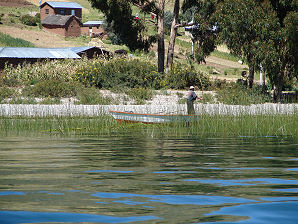 | 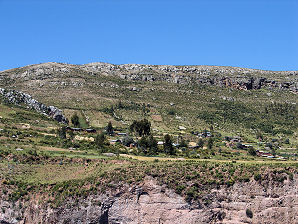 |
| Lake Titicaca Fisherman | Lake Titicaca Terraces |
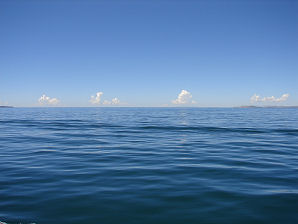 | 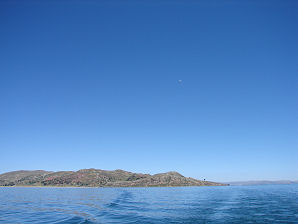 |
| Bolivia Lies Beyond The Horizon | Taquile Island |
 | 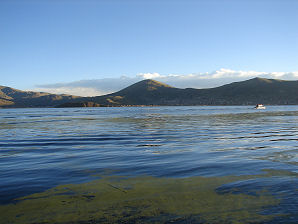 |
| Lake Titicaca Esteves Island Libertador Hotel Coming Back To Puno | The Waterway Back To Port |
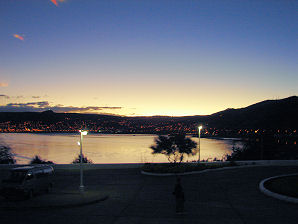 | |
| Lake Titicaca At Night From Libertador Hotel | Puno At Night From Libertador Hotel Parking Lot |
Click On Any Of The Following Links By Amazon.Com
For Books About Hiking Or Touring In Peru.
Some Are Must Have Books - If You Are Going To Peru.
We Also Are Including Some Great Music CD's & DVD's. No Obligation!
Back To Puno Tours Main Page
Back To Peru Tours Main Page
Back To DeLange Home Page





